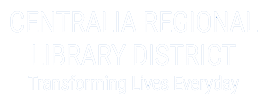Your library is a proud sponsor of the 1,000 Book Before Kindergarten Program, which encourages parents and guardians to read 1,000 books or more to their child before he or she starts kindergarten. Does it sound hard? Not really if you think about it. The key is perseverance. Make it exciting. When your children reach a milestone, give him/her a small reward (stickers, backpacks, books).
If you read just 1 book a night, you will have read about 365 books in a year. That is 730 books in two years and 1,095 books in three years. If you consider that most children start kindergarten at around 5 years of age, you have more time than you think (so get started).
HOW TO PARTICIPATE
- Read with your child. Studies have shown that reading with your child provides a great opportunity for bonding. Reading together is fun and will create life‐long memories for the both of you.
- Keep track of the titles of the books that you read with your child. Make a record of what you are reading in a spiral notebook, on our convenient reading log sheets, online, or by whatever method you want. The journal itself will make a great keepsake item for your precious child.
- If you are able to, make sure to keep a record of “any” book that is being read to your child. This includes teachers and siblings.
- Talk to your Librarian for more information and personalized help.
How to Succeed
1. Keep it Fun and Enjoyable – children like to do what is fun and enjoyable. Make reading fun and enjoyable. Stories should rarely be read in a monotone voice. Bring out the inner actor in yourself. Change your voice, make sounds, and laugh. Most of all make it fun and enjoyable.
2. Hold your Child While you Read – while you are still able to (provided that she hasn’t grown too big); hold your child while you read. Does she have a favorite blanket or toy? If so, incorporate using the favorite blanket or toy in your reading. For example, try using the blanket to create a fort. May be you can read to the favorite toy.
3. Interact with your Child – give your child the opportunity to read along. Ask a lot of questions. Although most books can probably be read in less than five (5) minutes; lengthen the reading process.
4. Read Books about What Interests your Child – Is your child excited about Dora the Explorer? What about Peppa the Pig? What about Curious George? Try to find books about things that interest your child. When your child gets older, take her to the library and she can choose her own books.
5. Incorporate Reading into a Daily Routine – Does your child like to be read to in the morning, after lunch, after dinner, or at bedtime? Make reading something that your child looks forward to. At the same time, do not make reading a rote and mundane event. If your child wants to skip her daily reading, that’s okay, too.
6. Repetition – Does your child like to be read the same story over and over? That’s okay. Read the same stories again and again. Your child will start enjoying the repetition and become familiar with the way stories are organized.
7. Keep Track of your Child’s Success – Keep track of your child’s success. Use a composition notebook, use the 1,000 Books Before Kindergarten iPhone or Android App; use any method that you want. Give your child praise after she listens to a certain amount of books. Soon, she’ll be asking you to “write down” the books after she hears them.
8. Always Carry a Book with You – Always carry a book with you where ever you go to keep your child occupied.
Finally, if you read just one book a day with your child, you’ll reach 1,000 books in less than three years.
Why is 1,000 Books Before Kindergarten so Important?
Depending on where you live, public education is only provided over an age range starting between five (5) and eight (8). However, numerous studies have established that by age three (3), a child’s brain has reached 80 percent of its adult volume. The brain develops most rapidly during the first 1,000 days of a child’s life. A toddler’s brain creates up to two million new connections every second. Early experiences and interactions are a key factor in a child’s brain development. The ability to learn language skills is greatest before the age of six (6). Early literacy skills have a lifelong impact on educational and occupational success. The most important predictor of school success is being read to at home during early childhood.
